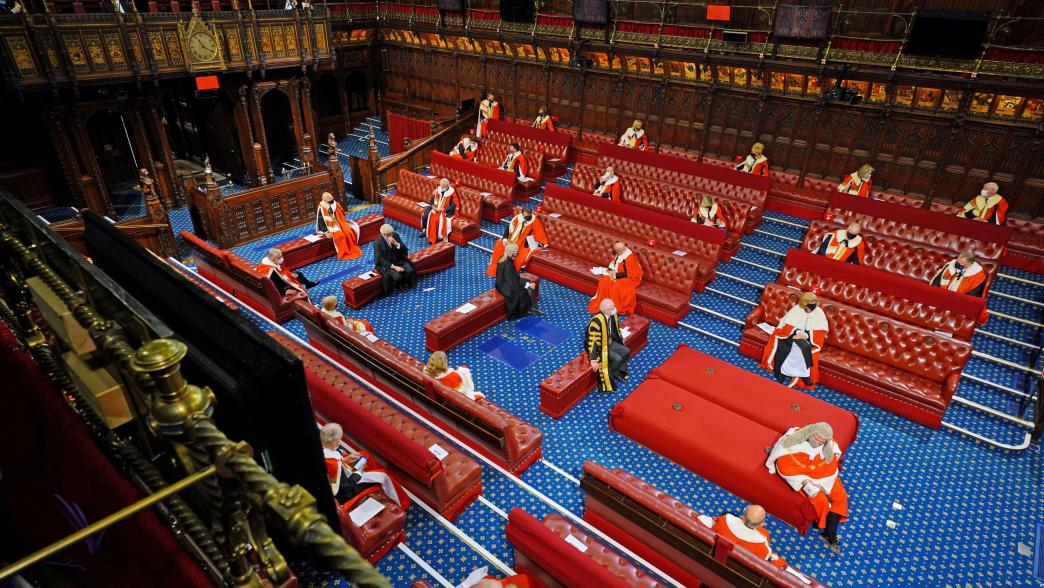Labour’s proposals for a reformed House of Lords need more work
Labour will now need to think carefully about how to design and deliver such a major constitutional change

Labour has set out plans to reform the House of Lord, but Jess Sargeant says it will now need to think carefully about how to design and deliver such a major constitutional change
Labour leader Keir Starmer has announced that, if elected, his party would abolish the House of Lords and replace it with a democratically elected second chamber. The proposal, informed by Gordon Brown’s – soon to be published – constitutional review is intended to “restore trust in politics”. The case for reform is strong: appointments have been increasingly numerous and inappropriate, with the House of Lords Appointment Commission unable to block controversial peerages for party donors and those previously embroiled in scandals. The presence of hereditary peers and religious representatives in the legislature is not befitting of modern democracy and attempts to constrain the size of the 800-strong chamber have had limited impact.
The Labour leader should not underestimate the scale of the task of major constitutional reform. As a recent paper by Phillip Rycroft highlights, successive UK governments have taken an ad hoc approach to constitutional reform, failing to consider the impact of reforms on the functioning of the system as a whole, and allowing themselves to be driven by short-term political factors. Labour should not fall into the same trap. It is important to take seriously the need to develop robust and fully-considered proposals and the process for giving effect to them.
The proposals should focus on function before form
Labour’s plans echo most critiques of the House of Lords which focus on form – the membership of the upper chamber – rather than the function that it should play in our constitutional system. Labour should start with what it thinks the House of Lords should do.
The current House of Lords performs an essential role as a revising chamber, providing detailed scrutiny of legislation and government activity. Increasingly, the House of Lords has become a key check on government, challenging legislation that has often sailed through the House of Commons – where a government that has a majority tightly controls the timetable. Its ability to play this role cannot be reduced to one single factor, but the absence of a government majority, the less-partisan culture, and the greater amount of time members can dedicate to legislative scrutiny (as opposed to constituency work like in the Commons) are all key. Future reforms will need to ensure these features are retained in a reformed chamber or risk a further imbalance of power between Parliament and the Executive.
Labour also proposes a special role for a reformed chamber in protecting devolution – but a regionally and nationally representative membership alone is unlikely to guarantee it will perform this function, as a House of Commons composed of 650 representatives from across the country has proven. Labour will need to consider what powers or procedures might be necessary for this role to be fulfilled, whether such a role could be extended to protecting other constitutional principles as Rycroft recommends, and what knock-on implications it might have for the functioning of Parliament and the activity of government.
The party must do more to build agreement around reform
Lords reform has been notoriously difficult, in part because of the lack of agreement around the alternatives and the need for the current membership to approve any implementing legislation. By ensuring its proposals have broad political and public support, Labour could make it more difficult for Peers – who remain conscious of their lack of democratic mandates – to resist reform.
The most successful constitutional proposals have been preceded by broad and inclusive conversations. For example, proposals for Scottish devolution were informed by the Scottish Constitutional Convention which brought together political parties and civil society groups to put forward ideas for the functioning of the new institutions. By contrast, the Brown review that has informed Labour’s plans has so far been operating behind closed doors
Labour has promised to hold a consultation on the composition and size of a new chamber, but it could go beyond that by committing to a formal process of engagement on its plans. Rycroft argues that “significant constitutional change should be subject to extensive and meaningful public consultation”, and such an issue could be ripe for a deliberative process, such as a citizens’ assembly. Although a referendum would not be required by constitutional precedent – previous Lords reforms have taken place without one – endorsement by the electorate could be used as a mechanism for constitutional entrenchment, protecting reforms from reversal by a future government.
Whatever the mechanism, if the aim is to “restore faith in politics”, the party needs to work with other parties, civil society and the public to ensure the reformed chamber has buy-in from across the country and the political spectrum.
Labour should think about how it will deliver major constitutional change
If constitutional reform is to be a major part of a future Labour government’s agenda, then it will need to start considering now who will be responsible for making it happen. So far, the party has outsourced responsibility for the constitution to Gordon Brown, but with the former PM unlikely to return to the cabinet, and no shadow cabinet members with clear responsibility in this area, their ship lacks a captain.
Labour is right to pursue reform of the House of Lords, but if it is serious about doing so then it will need to think about the route to reform, not just the destination.
- Supporting document
- Becoming-a-Lords-minister.pdf (PDF, 459.96 KB)
- Keywords
- Constitutional reform
- Political party
- Labour
- Legislature
- House of Lords
- Public figures
- Keir Starmer
- Publisher
- Institute for Government